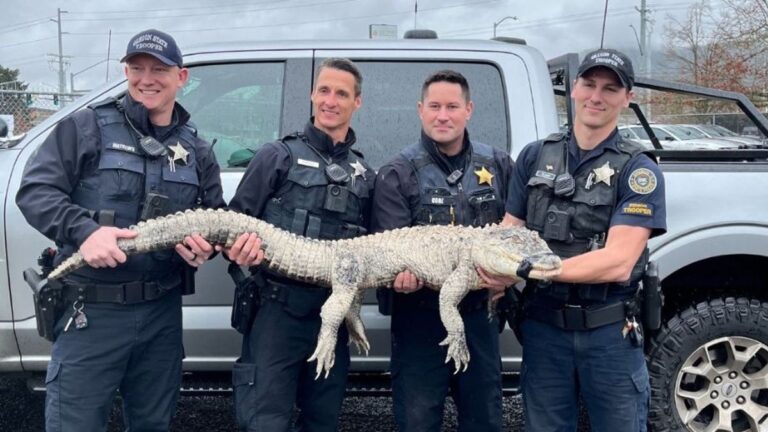In an unusual development for animal welfare and law enforcement, Oregon State Police recently stepped in to rescue an alligator that had been kept as a family pet for more than a decade in Springfield, Oregon. The discovery, while intriguing to some, highlights the complex issues surrounding exotic pet ownership, which often leads to legal and ethical difficulties. The incident highlights the plight of the crocodile, which was found in poor health after living for 13 years far from its natural habitat.
Development of an unusual rescue drama
This alligator's journey from pet to protection case highlights gaps in public knowledge regarding the laws surrounding exotic pet ownership. When Springfield residents first brought an alligator into their home, they likely didn't anticipate the legal issues that would arise. It was only through the intervention of the Oregon State Police that the owner learned of state regulations prohibiting possession of such creatures without a special permit. The incident not only marks a turning point in the crocodile's life, but also a poignant reminder of the responsibility that comes with owning an exotic animal.
A new home for misunderstood reptiles
After being rescued, the alligator was transferred to a rehabilitation center, which has been reviewed and approved by veterinarians affiliated with the Department of Agriculture. Here, the crocodiles will spend the rest of their lives under professional care in more suitable living conditions. This transition to a new environment is a significant upgrade from a previous living environment that was considered unsatisfactory to its needs. This incident is one of the few seizures of alligators in the state, as the Oregon Department of Fish and Wildlife recalled, and is a rare occurrence in Oregon's involvement with exotic wildlife law enforcement. This is an event worth noting.
Legal implications and public awareness
The legality of owning exotic pets varies widely by jurisdiction, with Oregon's position explicitly prohibiting keeping pets without a permit. Permits are usually granted only for specific purposes, such as wildlife rehabilitation, education, or research, but in this case, none of those apply. This case is an important wake-up call for people who may be considering or currently owning exotic pets without fully understanding the legal and ethical implications. This emphasizes the importance of public awareness and education on this topic, advocating for the well-being of all living things and respecting the laws established to protect them.


